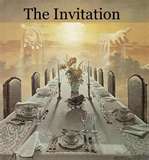......for in the image of God made he man.
Genesis 9:6
"The evidence shows that Neanderthals were fully human, having shared genetic information with us. Why, then, do Darwin Supremacists continue to treat them as “other” than human?
One clear case (among many) where paleoanthropologists have been totally wrong has been in the classification of Neanderthals as a separate species, Homo neanderthalensis. As pointed out before, this amounts to a case of historical racism.
*For years, there have been growing signs that these ancient humans were just as intelligent as modern humans.
*The clincher in the last few years, though, is that we all have Neanderthal genes in us. Clearly, any individual capable of interbreeding and carrying on fertile offspring over generations counts as a member of the same species.
Neanderthal brains ‘grew more slowly (BBC News). Contrary to mounting evidence, Pallab Ghosh tries to keep Neanderthals distinct from modern humans. And yet in the body of the article, he admits to the intriguing possibility that their brains may have been “more advanced” than our own. Here’s how he treats the demise of the old picture, without pinning any blame on the evolutionists for promoting it for so long:
Neanderthal Child Grew Just Like a Modern Human (National Geographic). “A 49,000-year-old skeleton supports the notion that long childhoods—thought to help nurse a larger brain—aren’t unique to Homo sapiens.” Note the subtle implication that they were still “other” than us. The article ends with other evolutionists disputing the implications drawn from the fossil, as if wishing to maintain the old view.
Evolutionists in the Eugenics era used to classify living people as ‘primitive’ or closer to apes than to man. Now they do it with people who are no longer here to defend themselves. If they really think that Neanderthals were “other” than modern humans, let’s see them use CRISPR to cut out their Neanderthal genes and see if that increases their fitness.'" CEH
Genesis 9:6
"The evidence shows that Neanderthals were fully human, having shared genetic information with us. Why, then, do Darwin Supremacists continue to treat them as “other” than human?
One clear case (among many) where paleoanthropologists have been totally wrong has been in the classification of Neanderthals as a separate species, Homo neanderthalensis. As pointed out before, this amounts to a case of historical racism.
*For years, there have been growing signs that these ancient humans were just as intelligent as modern humans.
*The clincher in the last few years, though, is that we all have Neanderthal genes in us. Clearly, any individual capable of interbreeding and carrying on fertile offspring over generations counts as a member of the same species.
Neanderthal brains ‘grew more slowly (BBC News). Contrary to mounting evidence, Pallab Ghosh tries to keep Neanderthals distinct from modern humans. And yet in the body of the article, he admits to the intriguing possibility that their brains may have been “more advanced” than our own. Here’s how he treats the demise of the old picture, without pinning any blame on the evolutionists for promoting it for so long:
The brutish picture of Neanderthals is an old one. In the last few years there has been growing evidence to suggest that they were a distinct human species with some small differences. Now we can say that their growth pattern is similar to ours, too.
Neanderthal Child Grew Just Like a Modern Human (National Geographic). “A 49,000-year-old skeleton supports the notion that long childhoods—thought to help nurse a larger brain—aren’t unique to Homo sapiens.” Note the subtle implication that they were still “other” than us. The article ends with other evolutionists disputing the implications drawn from the fossil, as if wishing to maintain the old view.
Evolutionists in the Eugenics era used to classify living people as ‘primitive’ or closer to apes than to man. Now they do it with people who are no longer here to defend themselves. If they really think that Neanderthals were “other” than modern humans, let’s see them use CRISPR to cut out their Neanderthal genes and see if that increases their fitness.'" CEH

